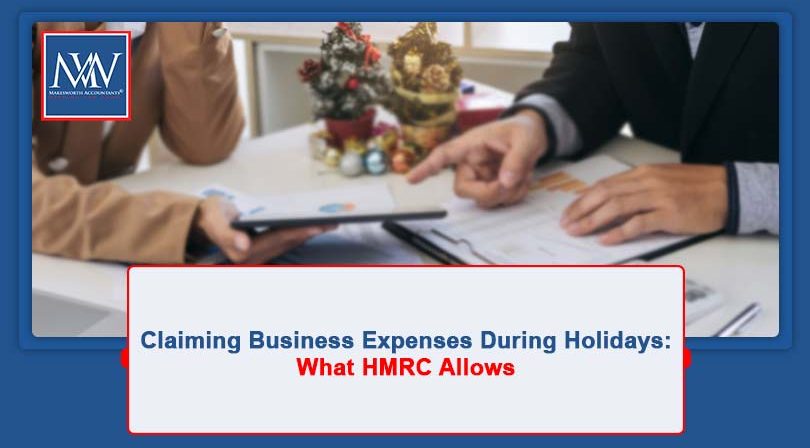
Claiming Business Expenses During Holidays: What HMRC Allows
When Work Meets Leisure
Sunny skies often spark dreams of holidays, but for many business owners, work doesn’t stop just because you’re away. So, if you find yourself meeting a supplier or client during your trip, can you claim the travel and hotel expenses?
The short answer: it depends. HMRC allows deductions for expenses incurred wholly and exclusively for business purposes. However, combining business with personal leisure makes the situation more nuanced.
Understanding the ‘Wholly and Exclusively’ Rule
The foundation of expense deductibility is whether the cost was incurred solely for business. But in practice, business and personal activities can overlap. HMRC does offer some flexibility: if a clear business portion of an expense can be identified, that part may be claimed. For example, if you’re on holiday but take a separate trip to meet a supplier, only the cost of that side trip can be claimed.
Splitting Costs: When Can You Apportion?
HMRC permits apportionment of costs if the business element can be separated from the private part using a reasonable method. For instance, if you drive from your holiday spot to meet a client, the mileage for that round trip may be claimed. But your general holiday travel or hotel stays are considered private and are not deductible.
This is why keeping a mileage log or detailed records of business meetings is so important. It helps prove the business intent and allows a fair division of the expenses.
What About Dual-Purpose Expenses?
If an expense has a dual purpose and can’t be reasonably split into business and personal elements, HMRC will disallow the entire amount. Classic examples include a car used for both business and personal errands or a hotel stay that blends client meetings with family leisure time.
In short, if you can’t separate the two, you likely can’t claim anything.
The Role of Intent
Your intent plays a crucial role. If your primary reason for the trip was leisure, and you happen to squeeze in some business, you’re unlikely to be able to claim any related costs. However, if the trip is primarily for business and any leisure is incidental, the business-related expenses may be deductible.
A good example: flying to Spain to meet a supplier. If that was your main purpose, and you enjoy the beach while you’re there, HMRC won’t disallow the cost just because you caught some sun.
Incidental Private Benefit: What If There’s Some Leisure?
Sometimes, a business trip may bring incidental personal enjoyment. As long as the main purpose of the trip is business, HMRC generally accepts such expenses. The presence of good weather or a nice hotel doesn’t nullify the business nature of the visit.
However, taking your spouse or children along? Their share of the costs must be excluded from any claim, unless they’re employees of the business.
Documentation Is Key
To successfully claim business travel expenses, clear documentation is vital. Keep:
- Travel tickets or booking confirmations
- Meeting minutes or appointment schedules
- Receipts for transport or meals
- Notes showing who attended and why
For limited companies, pay for expenses like flights or train fares through the company account whenever possible. HMRC may examine airline tickets or booking details, especially for overseas trips, to determine if travel was genuinely business-related.
Final Thought: Be Reasonable, Be Prepared
Blending business with pleasure isn’t inherently a problem, but any expense claimed must stand up to HMRC scrutiny. The clearer your intent and documentation, the better your chances of successfully claiming valid business costs.
Partner Note: S34 ITTOIA 2005.
For more information, Book a Free Consultation
Need Accountancy Support?
For information on bespoke training, or if you have any other questions for Makesworth Accountant, please fill in your details below
















 151
151